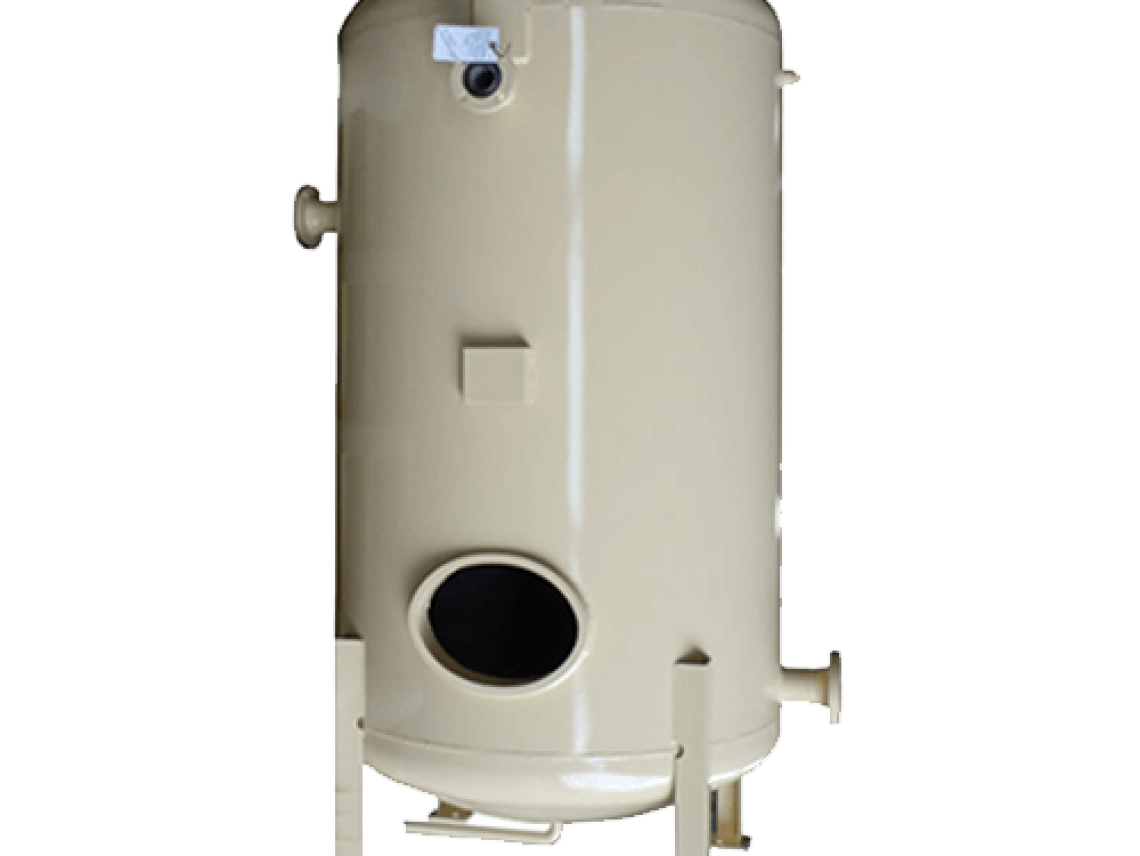
API 650 welded steel storage tanks are designed to store oil, fuel, chemicals, and other hazardous materials in compliance with the American Petroleum Institute’s API 650 standard. These standards outline strict requirements for design, material selection, fabrication, inspection, and testing, ensuring tanks can resist extreme conditions, prevent leaks, and provide decades of safe operation. Explore Red River’s industry-leading fabrication and design capabilities to see how we deliver expert, compliant storage tank solutions.
Carbon steel is one of the most commonly used API 650 compliant materials. It offers exceptional strength and durability, making it ideal for storing oil, chemicals, and other liquids. Its affordability and availability make carbon steel a preferred choice for industries requiring large welded storage tanks. Learn more about performance and compliance in our processing tank materials guide.
Stainless steel is valued for corrosion resistance and durability. It is frequently chosen for API 650 tanks that store highly corrosive substances or operate in harsh environmental conditions. This ensures long service life and reduced maintenance costs.
Aluminum is lightweight, corrosion resistant, and suitable for specialized API 650 applications. While not as strong as steel, its ease of fabrication makes it useful in certain custom tank designs.
Specialty alloys with high nickel or chromium content are used when standard materials cannot meet API 650’s demanding requirements. These alloys deliver superior resistance to chemical attack and extreme temperature performance.
The tensile strength of the materials used in API 650 tanks plays a crucial role in determining their ability to withstand internal and external pressures without breaking. For instance, high tensile strength ensures that the tank can securely store a variety of substances in challenging environments.
Materials with high corrosion resistance are essential for API 650 tanks, especially when storing corrosive liquids. In fact, corrosion-resistant materials not only extend the tank’s lifespan but also significantly reduce maintenance costs over time.
Ductility refers to a material’s ability to deform without breaking. This property is particularly important for API 650 tanks, as they must handle pressure changes caused by filling, emptying, and environmental fluctuations. Consequently, ductile materials enhance the tank’s resilience and adaptability.
Toughness measures a material’s capacity to absorb energy and resist fractures. Therefore, API 650 tank materials must exhibit toughness to handle sudden impacts and unexpected changes in strain or temperature.
API 650 tanks are primarily used for large-scale storage of oil, fuel, chemicals, and hazardous substances. They meet stringent safety and regulatory standards, ensuring resistance to extreme environmental conditions while preventing leaks or spills.
Regular inspections include visual checks, ultrasonic thickness testing, hydrostatic tests, and verification of protective coatings. Maintenance may involve recoating, corrosion repairs, and replacing worn components to ensure continued compliance. See our comprehensive pressure vessel inspection services for advanced safety protocols.
Material selection, product stored, environmental exposure, and maintenance frequency all impact tank life. Properly maintained API 650 tanks can operate for several decades.
Yes, tanks can be engineered for unique requirements — including special coatings, heating/cooling systems, seismic reinforcement, and tailored dimensions.
Proper grounding, pressure relief systems, spill containment, and regular operator training are essential safety measures.
In the realm of industrial solutions, Red River emerges as a pioneer, offering a diverse range of custom-engineered products and facilities. Among our specialties is the design and production of Custom/OEM Pressure Vessels, meticulously crafted to meet individual client requirements, ensuring performance under various pressure conditions. Our expertise extends to the domain of prefabrication, where Red River leads with distinction.
The company excels in creating prefabricated facilities, modules, and packages, reinforcing its stance as a forerunner in innovation and quality. This proficiency is further mirrored in their Modular Skids offering, where they provide an array of Modular Fabricated Skid Packages and Packaged equipment. Each piece is tailored to client specifications, underlining their commitment to delivering precision and excellence in every project they undertake.